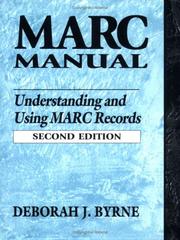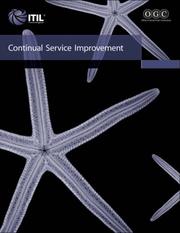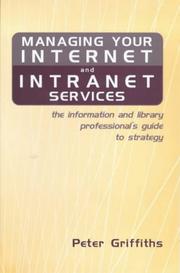| Listing 1 - 10 of 22 | << page >> |
Sort by
|
Multi
ISBN: 9789087284084 9789400604537 Year: 2023 Publisher: Leiden University Press
Abstract | Keywords | Export | Availability | Bookmark
 Loading...
Loading...Choose an application
- Reference Manager
- EndNote
- RefWorks (Direct export to RefWorks)
A multi-disciplinary perspective' assesses the use of data and information on modern conflict from different scientific and methodological disciplines, aiming to generate valuable contributions to the ongoing discourse on data, the military and modern warfare. 00Military Systems and Technology approaches the theme empirically by researching how data can enhance the utility of military materiel and subsequently accelerate the decision-making process. War Studies take a multidisciplinary approach to the evolution of warfare, while Military Management Studies take a holistic organisational and procedural approach. Based on their scientific protocols and research methods, the three domains put forward different research questions and perspectives, providing the unique character of this book.
Book
ISBN: 9781032216003 1003269141 1000821390 1003269141 1000821455 9781003269144 9781000821390 9781000821451 Year: 2023 Publisher: Boca Raton : CRC Press,
Abstract | Keywords | Export | Availability | Bookmark
 Loading...
Loading...Choose an application
- Reference Manager
- EndNote
- RefWorks (Direct export to RefWorks)
"We live in a digital world, where we use digital tools and smart devices to communicate over the Internet. In turn, an enormous amount of data gets generated. The traditional computing architectures are inefficient in storing and managing this massive amount of data. Unfortunately, the data cannot be ignored as it helps businesses to make better decisions, solve problems, understand performance, improve processes, and understand customers. Therefore, we need modern systems capable of handling and managing data efficiently. In the past few decades, many distributed computing paradigms have emerged, and we have noticed a substantial growth in the applications based on such emerging paradigms. Some well-known emerging computing paradigms include Cloud Computing, Fog Computing, and Edge Computing which have leveraged the increase in the volume of data being generated every second. However, the distributed computing paradigms face critical challenges, including network management and cyber security. We have witnessed the development of various networking models, IoT, SDN, and ICN, to support modern systems requirements. However, they are undergoing rapid changes and need special attention. The main issue faced by these paradigms is that traditional solutions cannot be directly applied to address the challenges. Therefore, there is a significant need to develop improved network management and cyber security solutions. To this end, the book highlights the challenges faced by emerging paradigms and presents the recent developments made to address the challenges. More specifically, it presents a detailed study on security issues in distributed computing environments and their possible solutions, followed by applications of medical IoT, deep learning, IoV, healthcare, etc"--
Computer networks --- Internet --- Security measures. --- Electronic data processing --- Computer security --- Distributed processing. --- Technologial innovations. --- COMPUTER NETWORKS--SECURITY MEASURES --- INTERNET--SECURITY MEASURES --- COMPUTER SECURITY
Book
ISBN: 9781503633223 9781503637900 1503637905 Year: 2023 Publisher: Stanford, California
Abstract | Keywords | Export | Availability | Bookmark
 Loading...
Loading...Choose an application
- Reference Manager
- EndNote
- RefWorks (Direct export to RefWorks)
"Would you read this book if a computer wrote it? Would you even know? And why would it matter? Today's eerily impressive artificial intelligence writing tools present us with a crucial challenge: As writers, do we unthinkingly adopt AI's time-saving advantages or do we stop to weigh what we gain and lose when heeding their siren call? To understand how AI is redefining what it means to write and think, linguist and educator Naomi Baron leads us on a journey connecting the dots between human literacy and today's technology. From nineteenth century lessons in composition, to mathematician Alan Turing's work creating a machine for deciphering war-time messages, to contemporary engines like ChatGPT, Baron gives readers a spirited overview of the emergence of both literacy and AI, and a glimpse of their possible future. As the technology becomes increasingly sophisticated and fluent, it's tempting to take the easy way out and let AI do the work for us. Baron cautions that such efficiency isn't always in our interest. As AI plies us with suggestions or full-blown text, we risk losing not just our technical skills but the power of writing as a springboard for personal reflection and unique expression. Funny, informed, and conversational, Who Wrote This? urges us as individuals and as communities to make conscious choices about the extent to which we collaborate with AI. The technology is here to stay. Baron shows us how to work with AI and how to spot where it risks diminishing the valuable cognitive and social benefits of being literate"--
Philosophy of science --- Artificial intelligence. Robotics. Simulation. Graphics --- Mathematical linguistics --- Authorship --- Writing --- Artificial intelligence. --- Technology --- Technological innovations. --- Data processing. --- Automation. --- Social aspects. --- ChatGPT. --- Creativity. --- English composition. --- Large language model. --- Literacy. --- Natural language processing. --- Translation. --- Writing. --- Artificial intelligence --- Technological innovations --- Data processing --- Automation --- Social aspects --- TECHNOLOGICAL INNOVATIONS --- AUTHORSHIP --- ARTIFICIAL INTELLIGENCE --- TECHNOLOGY--SOCIAL ASPECTS
Book
ISBN: 9781783305032 9781783305049 9781783305230 1783305231 1783305045 1783305037 Year: 2021 Publisher: London: Facet,
Abstract | Keywords | Export | Availability | Bookmark
 Loading...
Loading...Choose an application
- Reference Manager
- EndNote
- RefWorks (Direct export to RefWorks)
Outside back cover : "Dirty data is a problem that costs businesses thousands, if not millions, every year. In organisations large and small across the globe you will hear talk of data quality issues. What you will rarely hear about is the consequences or how to fix it. Between the Spreadsheets: Classifying and Fixing Dirty Data draws on classification expert Susan Walsh’s decade of experience in data classification to present a fool-proof method for cleaning and classifying your data. The book covers everything from the very basics of data classification to normalisation, taxonomies and presents the author’s proven COAT methodology, helping ensure an organisation's data is Consistent, Organised, Accurate and Trustworthy. A series of data horror stories outlines what can go wrong in managing data, and if it does, how it can be fixed."
Database management --- Database searching --- Electronic spreadsheets --- Data base searching --- Database search strategies --- Search strategies in databases --- Searching databases --- Electronic information resource searching --- Data base management --- Data services (Database management) --- Database management services --- DBMS (Computer science) --- Generalized data management systems --- Services, Database management --- Systems, Database management --- Systems, Generalized database management --- Electronic data processing --- Electronic spread sheets --- Spread sheets, Electronic --- Spreadsheeting, Electronic --- Spreadsheets, Electronic --- Business --- Data processing --- Data Management --- Electronic Data Processing --- Databases as Topic --- Database management. --- Databases --- Database searching. --- Quality control. --- Data banks --- Data bases --- Databanks --- Database systems --- Computer files --- Electronic information resources --- DATABASE MANAGEMENT --- DATABASE SEARCHING --- ELECTRONIC SPREADSHEETS --- 681.3*E --- 681.3*E Data --- Data --- Library management --- Information systems

ISBN: 0333646975 9780333646977 Year: 1996 Publisher: London: MacMillan,
Abstract | Keywords | Export | Availability | Bookmark
 Loading...
Loading...Choose an application
- Reference Manager
- EndNote
- RefWorks (Direct export to RefWorks)
Atoomoorlog--Stabiliteit --- Besturingssystemen --- Command and control systems --- Commandement et conduite des operations [Systemes de ] --- Guerre nucléaire--Stabilité --- Nuclear crisis stability --- Command and control systems. --- Nuclear crisis stability. --- North Atlantic Treaty Organization --- Armed Forces --- Communication systems --- Data processing
Multi
ISBN: 9783031509667 9783031509650 9783031509674 9783031509681 Year: 2024 Publisher: Cham Springer Nature Switzerland :Imprint: Springer
Abstract | Keywords | Export | Availability | Bookmark
 Loading...
Loading...Choose an application
- Reference Manager
- EndNote
- RefWorks (Direct export to RefWorks)
"This edited volume examines the practices and applications of digital diplomacy in the OSCE Region. As a security organization, the Organization for Security and Cooperation in Europe (OSCE) prioritizes its member states' cyber security and cyberspace activities. The book examines two key areas where digital diplomacy challenges traditional diplomatic practices of the OSCE member States: institutional adaptation and policy innovation in the OSCE Region. It (1) investigates how capable and motivated foreign ministries are at the institutional level to shift to digital diplomacy, and (2) explores how digital diplomacy affects the fundamental diplomatic tasks of representation, communication, and relationship management at the policy level. Technological advances in IT and the Internet's widespread introduction in the wake of the 2000s provided new territories to conquer for states to pursue their interests. Moreover, technological developments and media attention enhanced information flow and communication through new platforms like online encyclopedias (i.e., Wikipedia), video-sharing sites (i.e., YouTube), and social media platforms (i.e., Facebook, Instagram, Twitter). Because of these transformations, public opinion became influential in diplomacy, and a greater need to include foreign publics as part of foreign policy goals emerged. Introducing case studies from several OSCE countries, presented by an international group of authors, this book provides a timely response to current affairs and policy debates by providing pluralistic perspectives from different countries and disciplines, such as international relations, political science, international law, and political economy). It will appeal to students, researchers, and scholars of the aforementioned disciplines, as well as policy-makers and practitioners interested in a better understanding of digital democracy and digital diplomacy in the OSCE region." --
Political philosophy. Social philosophy --- Political systems --- International relations. Foreign policy --- International law --- buitenlandse politiek --- communicatie --- politiek --- globalisering --- internationale organisaties --- internationale betrekkingen --- DIPLOMACY--DATA PROCESSING --- INTERNET AND INTERNATIONAL RELATIONS --- DIPLOMACY--COMPUTER NETWORK RESOURCES --- EUROPE--FOREIGN RELATIONS

ISBN: 1563081768 9781563081767 Year: 1998 Publisher: Englewood: Libraries unlimited,
Abstract | Keywords | Export | Availability | Bookmark
 Loading...
Loading...Choose an application
- Reference Manager
- EndNote
- RefWorks (Direct export to RefWorks)
Library automation --- Alphabetical cataloguing --- MARC formats --- MARC --- Handbooks, manuals, etc. --- Formats --- Guides, manuels, etc --- Handbooks, manuals, etc --- 025.31 --- -APIN (Information retrieval system) --- CATS System --- Formats, MARC --- Machine-Readable Cataloging formats --- MARC System --- Machine-readable bibliographic data formats --- Regels voor het catalogiseren --- Format --- Machine-readable bibliographic data formatsRegels voor het catalogiseren --- -Regels voor het catalogiseren --- 025.31 Regels voor het catalogiseren --- -025.31 Regels voor het catalogiseren --- APIN (Information retrieval system) --- United States --- Cataloging --- Data processing --- Libraries --- Automation --- MARC System - United States - Handbooks, manuals, etc. --- Cataloging - United States - Data processing - Handbooks, manuals, etc. --- Libraries - United States - Automation - Handbooks, manual,s etc. --- MARC formats - United States - Handbooks, manuals, etc

ISBN: 9780113310494 Year: 2007 Publisher: London The Stationery Office - TSO
Abstract | Keywords | Export | Availability | Bookmark
 Loading...
Loading...Choose an application
- Reference Manager
- EndNote
- RefWorks (Direct export to RefWorks)
681.3 --- informatietechnologie --- integrale kwaliteitszorg --- bedrijfsprocessen --- Support services (Management) --- Computer networks --- -004.67 --- Communication systems, Computer --- Computer communication systems --- Data networks, Computer --- ECNs (Electronic communication networks) --- Electronic communication networks --- Networks, Computer --- Teleprocessing networks --- Data transmission systems --- Digital communications --- Electronic systems --- Information networks --- Telecommunication --- Cyberinfrastructure --- Electronic data processing --- Network computers --- Business support services --- Management --- Computerwetenschap --- Distributed processing --- ManagementComputerwetenschap --- 681.3* / / / / / / / / / / / / / / / / / / / / / / / / / / / / --- E-books --- -Management
Book
ISBN: 9782711201525 271120152X Year: 2019 Publisher: Paris: Les arènes,
Abstract | Keywords | Export | Availability | Bookmark
 Loading...
Loading...Choose an application
- Reference Manager
- EndNote
- RefWorks (Direct export to RefWorks)
Hier, la Silicon Valley était l'épicentre du progrès technologique. Aujourd'hui, la Chine attire tous les regards. Comment a-t-elle pu rattraper son retard en quelques décennies ? Après avoir travaillé chez Apple, Microsoft et Google, Kai-Fu Lee est désormais l'un des premiers investisseurs chinois en intelligence artificielle. Dans cet ouvrage fascinant devenu un best-seller mondial, il raconte comment la Chine utilise "le pétrole du XXIee siècle", c'est-à-dire les données générées par ses centaines de millions d'utilisateurs.Grâce à une nouvelle génération d'entrepreneurs et à une course à l'innovation encouragée par les pouvoirs publics, la Chine invente un monde où l'intelligence artificielle se déploie dans toute la société : les restaurants, les hôpitaux, les salles de classe ou les laboratoires. Kai-Fu Lee démontre à quel point l'I.A. va changer nos modes de vie et transformer l'économie, en privilégiant les individus les plus adaptables et les plus créatifs.Il propose d'utiliser les ressources financières considérables ainsi générées pour soutenir les métiers où l'humain est irremplaçable l'éducation, l'artisanat, les services à la personne. Un livre qui se lit d'une traite et bouleverse notre vision de l'avenir.
ARTIFICIAL INTELLIGENCE --- ELECTRONIC DATA PROCESSING--CHINA --- Artificial intelligence --- Economic aspects --- Artificial intelligence - Economic aspects - China --- Artificial intelligence - Economic aspects - United States --- Technologies de l'information et de la communication --- Innovation --- Intelligence artificielle --- Prévision --- Société. --- Communication --- Information society --- Technological innovations

ISBN: 1856043401 Year: 2000 Publisher: London Library Association Publishing
Abstract | Keywords | Export | Availability | Bookmark
 Loading...
Loading...Choose an application
- Reference Manager
- EndNote
- RefWorks (Direct export to RefWorks)
Intranets (Computer networks) --- Library Web sites --- -Web sites --- -Webmasters --- #A0010A --- 610 Informatiecentra. Algemeen --- 691 Internet --- Web site administrators --- Internal internets (Computer networks) --- Pages, Web --- Sites, Web --- Web pages --- Websites --- World Wide Web pages --- World Wide Web sites --- WWW pages --- WWW sites --- Design --- Library automation --- Computer architecture. Operating systems --- Webmasters --- Web sites --- Authorship --- Web site development --- Microformats --- Web librarianship --- Electronic data processing personnel --- Business enterprises --- Wide area networks (Computer networks) --- Computer networks
| Listing 1 - 10 of 22 | << page >> |
Sort by
|

 Search
Search Feedback
Feedback About UniCat
About UniCat  Help
Help News
News